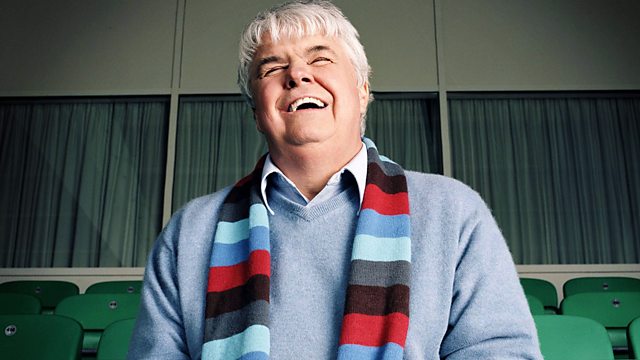Margaret Maughan
Peter White interviews Margaret Maughan, who won Britain's first ever Paralympic gold medal for archery.
When Margaret Maughan won Britain's first-ever gold medal in the Paralympics, there was no crowd, no podium, and almost no Margaret! They had to drag her off the coach going back to the rudimentary Olympic village. As no one was keeping the score in the archery competition, she had no idea she'd won, let alone the fact that there was a ceremony.
The incident was typical of the first Paralympics which took place in Rome in nineteen sixty. Paralympic villages these days are fully wheelchair accessible, each athlete has an assistant to help with any special needs, and athletes can get advice about anything from diet to the very latest equipment. In Margaret's first games the accommodation was on stilts, and they had to be carried in and out by soldiers. Undignified it might have been, but Margaret didn't seem to mind! It was typical of the times, and in No Triumph, No Tragedy, Margaret, now eighty-five, tells her story with the laconic acceptance of her generation.
It had been typical of her treatment since a road accident in Malawi only a year earlier left her paralysed and in a wheelchair. After being flown home, she was taken to Stoke Mandeville Hospital, then more or less just a row of huts, though offering what was at the time the most sophisticated treatment around for those with spinal injuries. It was run by Ludwig Guttmann, who Margaret clearly greatly admired, even though he ran the place a bit like an army camp. Discipline was tough; trips to the local pub which got out of hand were greeted with a firm dressing-down, and threats that you might have to leave.
He would put up with no feeling sorry for yourself, and it was Guttman who decreed that sport was therapy, and turned what began as sports days into the start of an international phenomenon--the Paralympics. A few hundred competitors went to the first games: now it's around four thousand. Then, hardly anyone noticed them go; now, there are hour upon hour of television coverage. Then, they begged time off work, if they were lucky enough to have a job; now people like Oscar Pistorius and our own Tanni Gray Thompson are household names.
But Margaret's story shows how these rudimentary games were symptomatic of attitudes back in the fifties and sixties. She might have got a gold medal in Rome, but when they put her on the train back to her home town in Preston, she and her wheelchair had to travel in the guard's van. Although she was a qualified teacher, it was assumed that no way could she control a class: she was offered a job stamping cards; there were no benefits, and no anti-discrimination legislation; but Margaret Maughan wonders on the programme whether present generations had the same get up and go as she and her friends. She's delighted that the Paralympics is now a major international festival, but she speculates whether some of the camaraderie has been lost along the way.
Last on
Broadcasts
- Sun 26 Aug 2012 13:3091热爆 Radio 4
- Mon 29 Apr 2013 23:3091热爆 Radio 4

